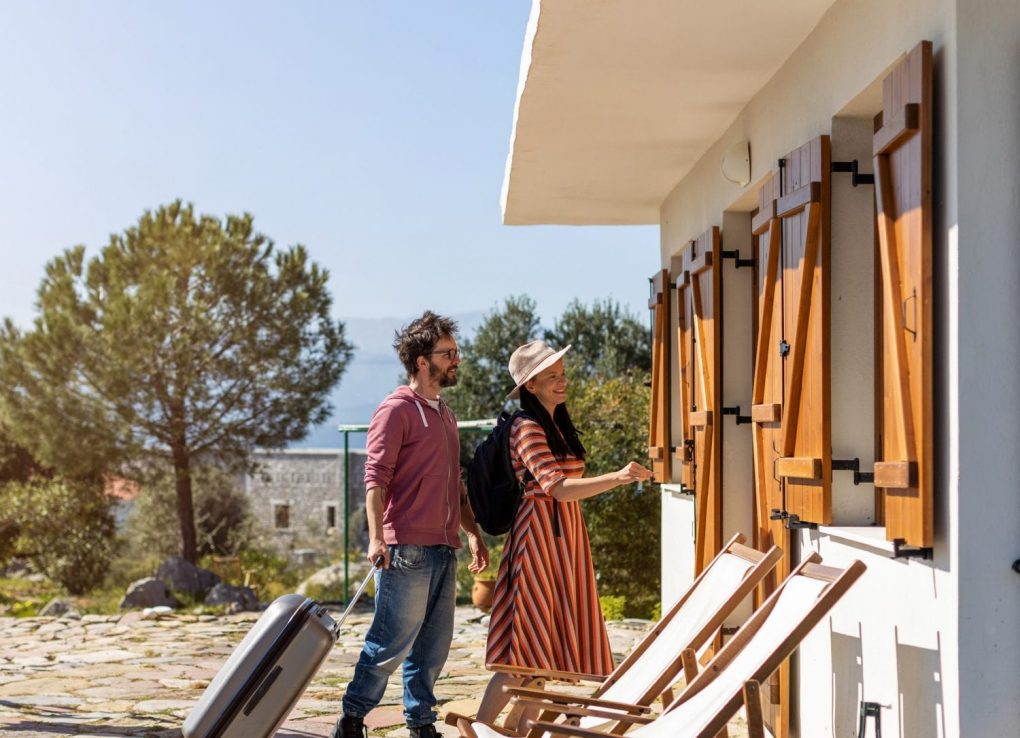After the flood of COVID-19 cancellations abated, property managers felt a renewed sense of hope as guests began to rebook vacation rentals destination by destination as lockdowns ended across the country.
But once they arrived, the guests seemed different. Some were fussy with ongoing demands, whereas others were destructive and aggressive.
“We have seen a 247 percent increase in the number of party-house related complaints at short-term rental properties (this summer) versus the same months last year,” said Ulrik Binzer, general manager of the Host Compliance division of Granicus.
Stories range from guests defecating in sinks and hot tubs, to overloading properties with illegal events, to becoming irate at small problems such as leaves in the pool or a short outage of cable TV service.
Guests may have thought the change of scenery would help soothe their mental state after months of home-bound monotony. But, psychologically, many found out there wasn’t an escape, even in a new environment.
“There is a lot of free-floating anger,” explained Margaret J. King, PhD, director of the Center for Cultural Studies and Analysis. “When you travel and are away from your home base, there is a lot of permission to express [emotions]—that’s one reason people travel. But part of the anger expression is that there’s no way to get away from [COVID-19]. There’s no place to go.”
As a result, rule-breaking behavior abounded in ways few were prepared for.
“The guest mentality has changed, in that they feel entitled,” explained Jennifer Mucha, president of Arrived vacation rentals, which manages more than 300 properties in locations such as Palm Springs, Hood River, and Kauai. “They feel like the rest of life is hammering them, so this is their one opportunity to control something. They feel entitled to get whatever they want out of it.”
This guest mentality was likely complicated by some airlines’ leniency to give credits and refunds, and the policy of platforms like Airbnb, which provided automatic refunds to guests, overriding existing host cancellation policies.
“Rules had been relaxed, so even though we were in quarantine, there were still other things that were now permitted,” King said. “Financially, relaxation about eviction, relaxed credit, you don’t have to go to work, you can work at your own home, you have a certain kind of autonomy.”
King also hypothesized that people traveling during this time might be the most depressed, most strung-out, or most in need of an escape. Thus, they are most likely to act out when reaching their destination.
Binzer said that rural locations have been particularly overwhelmed by this phenomenon. Small towns with just a handful of vacation rentals recently have seen exponential growth in listings in their towns—and exponential problems, too.
“People who used to go to Europe and Hawaii are now traveling closer to home,” he said. “A lot of people who live in big cities are traveling to rural areas and then acting like they are in Cancun at an all-inclusive resort when they’re actually in a residential neighborhood,” Binzer said.
And while industry professionals are well-versed in taking care of demanding guests and offering high-touch hospitality, the needs and behaviors during this period have caused many managers to retool their protocol for vetting and educating guests.
Paul Becker, president and founder of Bluewater Property Services, which handles luxury vacation rentals in the San Diego area, saw their already-strict processes failing. He worked with staff to create a higher level of screening to help avoid problems.
Requiring signed rental agreements, copies of government-issued IDs, and the names, ages, and emails of all guests to receive the rental rules are now required on every reservation.
Becker added that managers must also remember that the guest profile has changed. Many are first-timers to vacation rentals. He has staff send those guests additional information to give them a better idea of expectations.
“They don’t know much about what their behavior should be because they have never stayed in [a vacation rental], so it’s up to us to educate them,” Becker said. “You can’t call every day for new towels; you can’t call at all hours of the night like at a hotel. They won’t have the freedom that makes them feel like ‘no one is watching me’ like at a hotel.”
Mucha echoed Becker’s sentiments but said even with personal phone calls to all guests they have been exceedingly “sneaky.” She said that, although her company never allowed events at even their most spacious properties, guests tried to bring large groups to properties when their event venues were canceled due to COVID-19.
“When weddings were canceled because they couldn’t have more than 10 or 20 people in their group, people began thinking, ‘Oh, we can schedule a private residence!’ Well, private residences can’t handle that. Just with parking and neighbors alone, you can’t have 30 cars coming in without making neighbors upset.”
She said they began making it their mission to protect against events. They contact guests by phone and add strong, visible verbiage about no events in the booking confirmation, advertisements, check-in instructions—everywhere and anywhere guests could see the rules.

She said it was successful sometimes, but nothing is foolproof.
“This year, it wasn’t enough. They were pretty clever. They say they were just meeting up with some family for the weekend, and then they show up with 300 people.”
Many managers also named outdoor cameras of all types and noise-monitoring devices as required tools this year to help monitor occupancy issues.
“You hope to prevent [an event] before the other guests show up,” Mucha said.
Yet, as complex as this COVID-19 travel period has been, it hasn’t exclusively been filled with problem guests.
Susan Doull, the owner of Commendable Rentals, said that while she did have more damage this year than previous years, she also saw more gratitude expressed by guests when they could reschedule their trip for future dates without penalty. Many asked for the option to reschedule from the start and never demanded a refund.
“Their gratitude was a nice statement about humanity, kindness, and consideration,” Doull said. “I don’t want that to be wiped out by the people who did travel and were careless.”
Julie Davies, author of Vacation Rental Management 411 and educator of short-term rental certification, agrees, and she hopes these COVID-19-related experiences will not permanently tarnish the professional reputation of vacation rentals agencies and professionals.
“Please just don’t judge our industry by the last six months,” she said. “The entire world is crazy right now.”



The last 6 months have definitely sharpened the public relations skills. I have noticed a sharp decrease in clients patience while expectations have risen. I truly believe that once we revert back to a stronger sense of normalcy, this phase the industry is going through, will have sharpened every ones skills in some many facets.